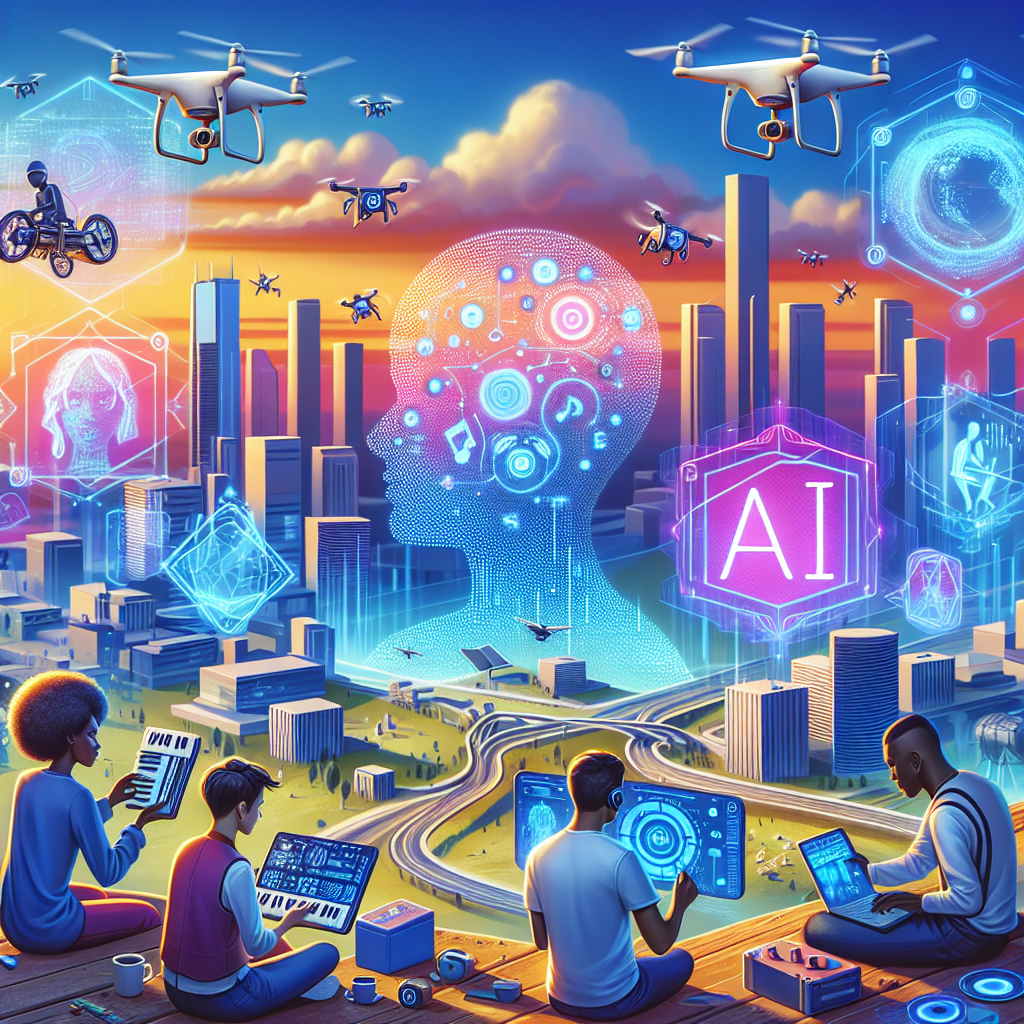Artificial Intelligence (AI) has become increasingly prevalent in our daily lives, impacting various industries and sectors. One area where AI is making a significant impact is in the creative economy. From generating art and music to assisting in content creation and marketing, AI is revolutionizing the way we think about creativity and innovation. In this article, we will explore the future of AI in the creative economy and its potential implications.
The Role of AI in the Creative Economy
AI technology has already demonstrated its capabilities in various creative fields. For example, AI algorithms have been used to create music, write poetry, and generate artwork. One of the most famous examples of AI in the creative economy is Google’s DeepDream, which uses neural networks to generate artistic images by interpreting and altering existing images.
In the field of marketing and advertising, AI is being used to personalize content and target specific audiences more effectively. AI algorithms can analyze consumer data and behavior to create tailored marketing campaigns that are more likely to resonate with the target audience. This has the potential to revolutionize the way businesses reach their customers and drive sales.
AI is also being used in the film and entertainment industry to streamline production processes and enhance visual effects. For example, AI algorithms can be used to analyze scripts and predict box office success, as well as generate realistic CGI effects. This has the potential to reduce production costs and improve the overall quality of films and television shows.
The Future of AI in the Creative Economy
As AI technology continues to advance, its role in the creative economy is only expected to grow. In the future, we can expect to see even more sophisticated AI algorithms that are capable of producing higher quality creative content. For example, AI may be able to generate music that is indistinguishable from that created by human composers, or produce artwork that is on par with the works of famous artists.
AI technology may also play a more significant role in assisting creatives in their work. For example, AI algorithms could help writers generate ideas and improve their writing, or assist designers in creating more innovative and visually appealing products. This has the potential to democratize creativity and make it more accessible to a wider range of people.
In the field of marketing and advertising, we can expect to see AI technology being used to create even more personalized and targeted campaigns. AI algorithms may be able to analyze data in real-time and adapt marketing strategies on the fly, creating more engaging and effective campaigns that drive sales and increase brand awareness.
In the film and entertainment industry, AI is likely to play an even larger role in the production process. AI algorithms may be able to generate entire scripts, design sets, and create realistic CGI effects without human intervention. This has the potential to revolutionize the way films and television shows are produced, making the process faster, more efficient, and more cost-effective.
Overall, the future of AI in the creative economy is bright. As AI technology continues to advance, we can expect to see even more innovative and groundbreaking applications of AI in creative fields. From generating art and music to assisting in content creation and marketing, AI has the potential to revolutionize the way we think about creativity and innovation.
FAQs
Q: Will AI replace human creatives in the creative economy?
A: While AI technology has the potential to assist and enhance the work of human creatives, it is unlikely to completely replace them. Human creativity is a complex and nuanced process that is difficult to replicate with AI algorithms. Instead, AI is more likely to work in collaboration with human creatives, helping them generate ideas, streamline processes, and produce higher quality content.
Q: How can creatives adapt to the rise of AI in the creative economy?
A: Creatives can adapt to the rise of AI in the creative economy by embracing and learning how to use AI technology in their work. By familiarizing themselves with AI algorithms and tools, creatives can harness the power of AI to enhance their creativity and productivity. Additionally, creatives can focus on developing skills and abilities that are difficult to replicate with AI, such as emotional intelligence, empathy, and intuition.
Q: What are the ethical implications of AI in the creative economy?
A: The rise of AI in the creative economy raises ethical concerns about ownership, copyright, and the impact of AI on creative industries. For example, who owns the rights to content created by AI algorithms? How can we ensure that AI-generated content is original and does not infringe on copyright laws? These are important questions that will need to be addressed as AI technology continues to advance in the creative economy.
In conclusion, the future of AI in the creative economy is promising. As AI technology continues to advance, we can expect to see even more innovative and groundbreaking applications of AI in creative fields. From generating art and music to assisting in content creation and marketing, AI has the potential to revolutionize the way we think about creativity and innovation. Creatives will need to adapt to the rise of AI by embracing and learning how to use AI technology in their work, while also focusing on developing skills and abilities that are difficult to replicate with AI. As we navigate the rapidly evolving landscape of AI in the creative economy, it is important to consider the ethical implications and ensure that AI technology is used responsibly and ethically.

